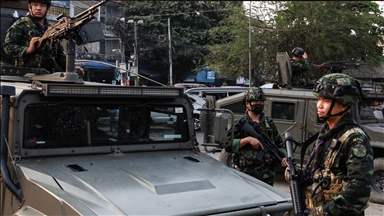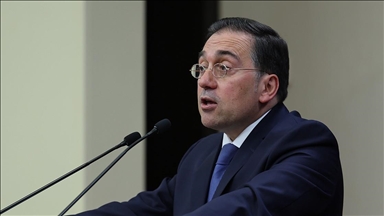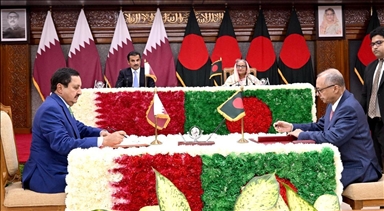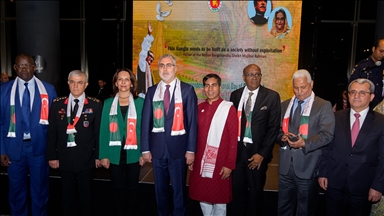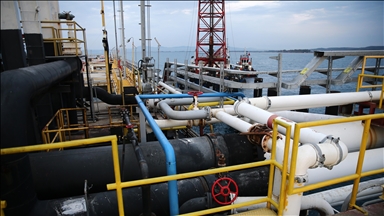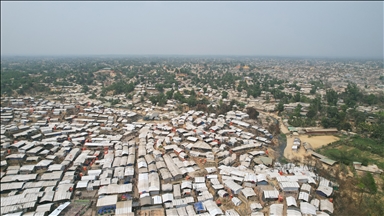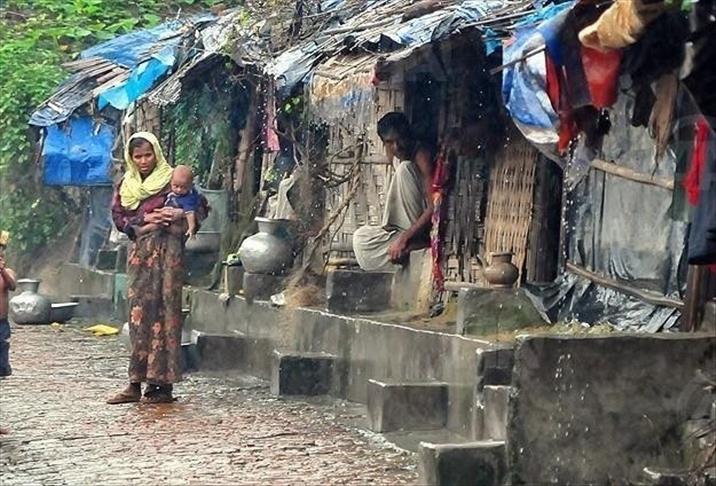
By Max Constant
BANGKOK
Thai searchers have found another six corpses in the jungles of southern Thailand, bringing the number of Rohingya and Bangladeshi nationals suspected to have died at the hands of smuggling gangs to 32.
Abdullah Jaidee, the imam of Padang Besar mosque -- who has been accompanying the rescue teams along with military and police officers -- told Anadolu Agency on Wednesday that they were discovered on a forested hill in Sadao district in Songkhla
They were "two men and four women,” he said, adding that they had been taken to a Songkhla hospital for forensic analysis.
“From the way they were buried, these are not the corpses of local Muslims but rather of Rohingya,” he said.
The corpses, buried in shallow graves, were found around 4 kilometers from a trafficking camp discovered last Friday, which contained 26 bodies.
Deputy Police Chief Chakthip Chaijinda told the Bangkok Post on Wednesday that police were hunting for a gunman, Supoj Muensew, accused of having killed Muslim Rohingya at the camps.
Officers said they hoped he could lead them to the key figures in the operation.
The 26 corpses discovered last week at the camp were Bangladeshi and ethnic Rohingya migrants who were detained by human smugglers.
A Bangladeshi camp survivor has told Thai media that after being kidnapped in Cox’s Bazar, in southern Bangladesh, he was thrown on a boat to Thailand and then detained in the Songkhla camp.
He said that those kept there were the ones whose families could not afford the ransoms requested by the traffickers.
A second camp was discovered Tuesday one kilometer from the first, but no bodies were found.
Following the camps' discovery, authorities have arrested three Sadao officials and suspended Police General Sunthorn Chalermkiart, police chief of Satun -- a province neighboring Songkhla -- from duty.
“It is because Sunthorn has close ties with a suspected leader of the trafficking ring,” the Nation reported Police Chief General Somyot Pumpanmuang as saying Tuesday.
Twelve police officers in Songkhla were also transferred Monday to inactive posts on suspicion of having received bribes from traffickers, or “in order to facilitate the investigation,” reported The Nation.
A major human trafficker nicknamed “Anwar of Songkhla” was also arrested last week in Nakhon Sri Thammarat province, to the north of Songkhla, and charged with human trafficking and abduction for ransom.
The gruesome discovery of the corpses has shocked the country, which is under heavy pressure from the U.S. and European Union for its paltry record on human trafficking.
Last year, it was given the lowest possible ranking in a U.S. State Department's human trafficking report, while earlier this month the EU gave Thailand six months to improve efforts in combating illegal fishing by trawlers on which migrants are used in “slave-like conditions.”
“The two problems are intertwined,” wrote Sanitsuda Ekkachai in an editorial in the Bangkok Post on Wednesday.
“Traffickers sell slave workers -- many of those who cannot pay ransom money -- to deep-sea trawlers. Many die at sea.”
Most of the Rohingya who end up in the camps are from Rakhine state in Western Myanmar.
After violent clashes in the summer of 2012 with Buddhist Rakhine, they began to flee en masse to find safety and work in Malaysia and beyond.
At first, they boarded rickety boats controlled by human smugglers -- which sometimes sank during the trip across the Andaman Sea -- but since last year they have been travelling on larger vessels.
Bangladeshis are also increasingly using human smugglers to go to what they see as the economic promise of Malaysia. But some of them -- along with the Rohingya -- are kidnapped and forced to board the boats.
Once arriving near the Thai coast, they are taken by truck to camps hidden in the jungle and detained until their families pay ransom.
They are then left to attempt to cross the border into Malaysia.
Anadolu Agency website contains only a portion of the news stories offered to subscribers in the AA News Broadcasting System (HAS), and in summarized form. Please contact us for subscription options.


